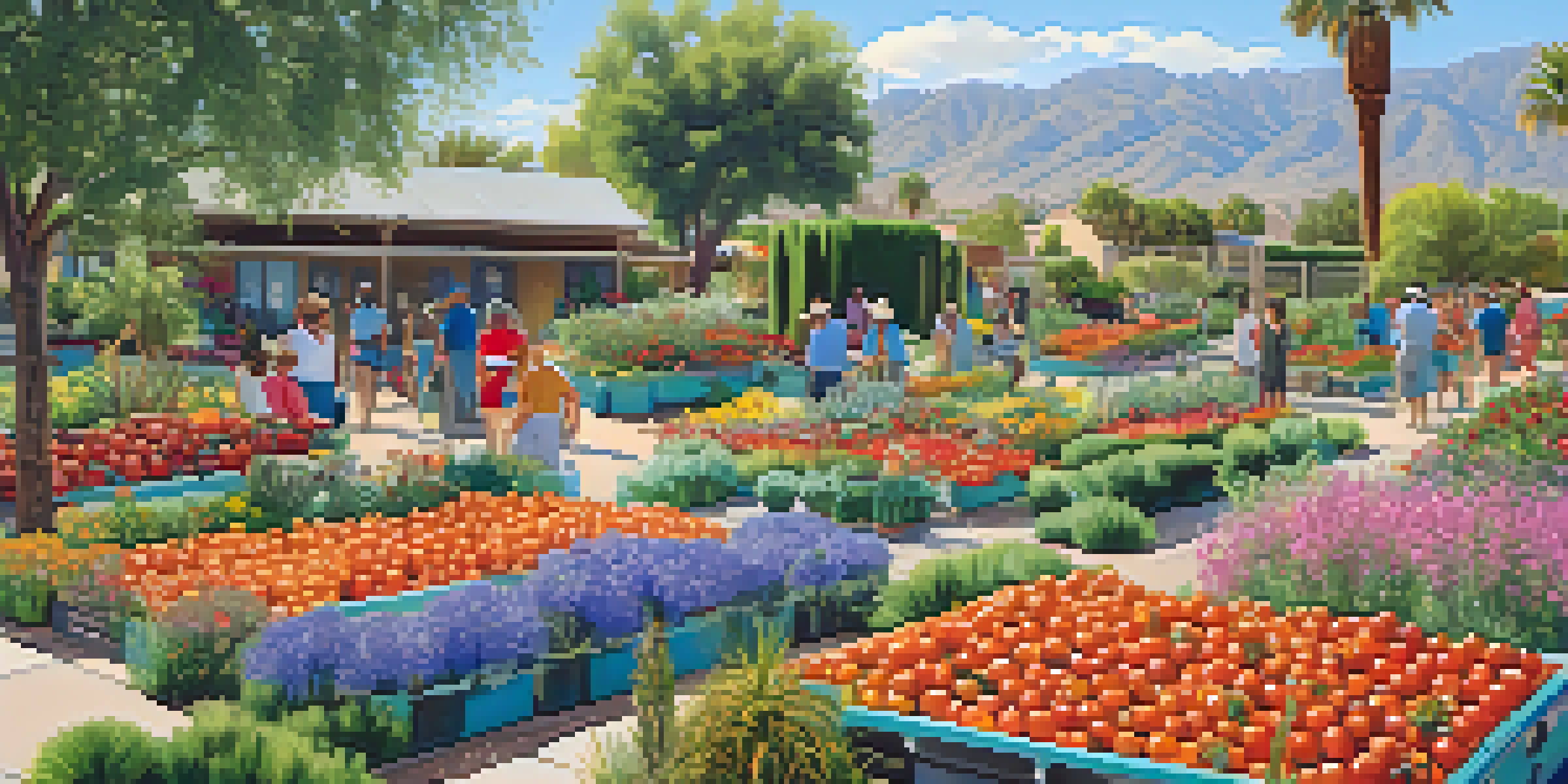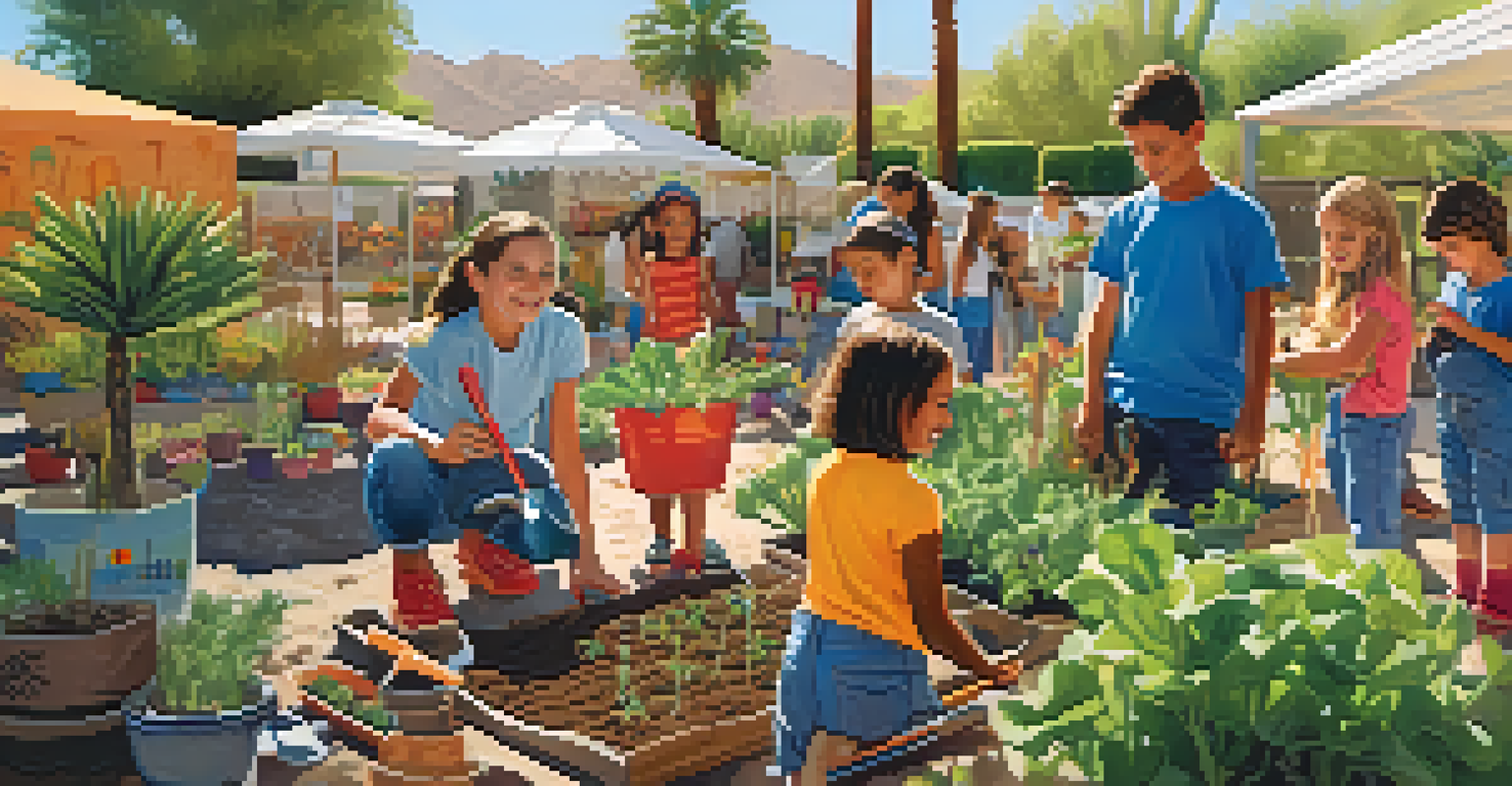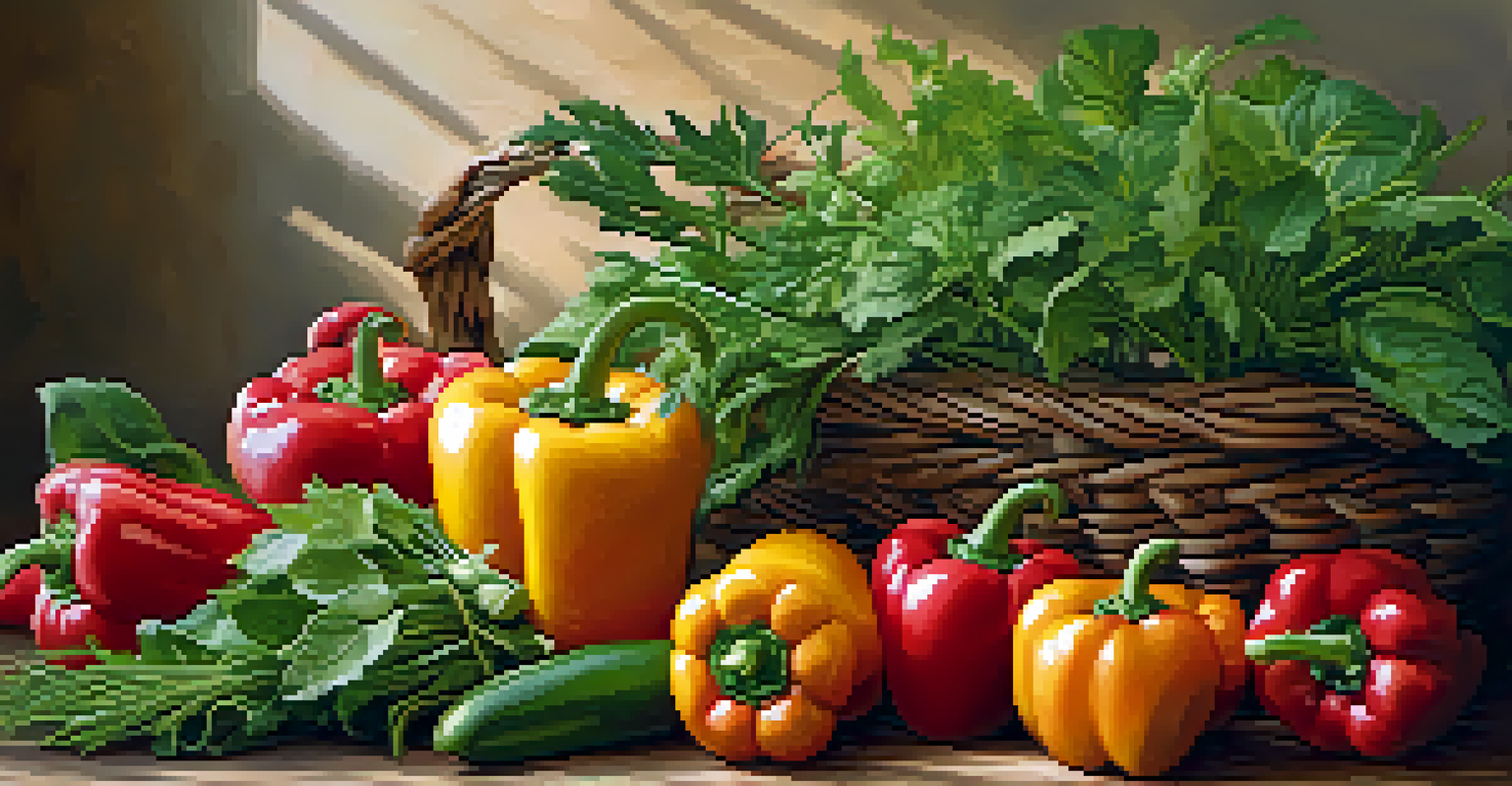The Role of Community Gardens in Palm Springs' Ecosystem

What are Community Gardens and Their Importance?
Community gardens are shared plots of land where residents come together to grow fruits, vegetables, and flowers. These gardens not only provide fresh produce but also foster a sense of community among neighbors. In Palm Springs, where water conservation is crucial, community gardens play an essential role in promoting sustainable practices.
The best time to plant a tree was 20 years ago. The second best time is now.
Imagine stepping into a vibrant space filled with blooming tomatoes, fragrant herbs, and friendly neighbors chatting about their latest harvest. This scene is typical in Palm Springs' community gardens, where gardening becomes a shared passion. It's a way for locals to connect with nature while also connecting with each other.
Moreover, these gardens serve as educational hubs, teaching residents about gardening techniques, nutrition, and environmental stewardship. This knowledge empowers people to take charge of their food sources, ultimately leading to healthier lifestyles.
Enhancing Biodiversity in Urban Settings
Biodiversity refers to the variety of life in a particular habitat, and community gardens significantly enhance this in urban areas like Palm Springs. By creating diverse planting environments, these gardens attract various species of pollinators, such as bees and butterflies, which are crucial for our ecosystem's health. The presence of these creatures supports not only the gardens but also surrounding landscapes.

For instance, a garden filled with native plants can attract local wildlife, providing them with food and shelter. This interaction helps maintain ecological balance while allowing residents to witness nature up close. Community members often find joy in spotting new birds or bees visiting their gardens, enriching their gardening experience.
Community Gardens Foster Unity
These gardens bring residents together, promoting social connections and collaboration among neighbors.
Furthermore, gardens can act as mini sanctuaries for other species, contributing to a more resilient urban ecosystem. This interconnectivity underscores the importance of preserving such spaces amid urban development.
Promoting Sustainable Practices and Water Conservation
In a desert city like Palm Springs, water conservation is a pressing concern. Community gardens promote sustainable gardening practices, such as drip irrigation and xeriscaping, which minimize water use while maximizing yield. These practices educate residents on how to garden responsibly, making the most of limited resources.
Gardening adds years to your life and life to your years.
For example, many community gardens implement rainwater harvesting systems to collect and store water for irrigation. This not only reduces water waste but also encourages community members to think creatively about resource management. It’s a great way to engage locals in conversations about sustainability and climate action.
By participating in community gardens, residents learn the value of conserving water and can carry these lessons into their own yards. This ripple effect contributes to a more water-conscious culture in Palm Springs, making the entire community more resilient to climate challenges.
Fostering Community Connections and Social Cohesion
Community gardens serve as melting pots where diverse groups of people come together. They create a sense of belonging, as residents share gardening tips, recipes, and stories. In Palm Springs, these interactions help bridge cultural gaps and build lasting friendships, enriching the community fabric.
Imagine a weekend morning where neighbors gather to share their harvests or participate in a gardening workshop. These experiences foster camaraderie and encourage collaboration, leading to stronger community ties. When people work together towards a common goal, they build trust and create a supportive environment.
Enhancing Biodiversity Urbanly
Community gardens create diverse ecosystems that attract essential pollinators, benefiting both gardens and surrounding environments.
Moreover, community gardens often host events, such as potlucks or farmer’s markets, which further enhance social connections. These gatherings not only celebrate the fruits of their labor but also strengthen community bonds, making Palm Springs a more connected place.
Contributing to Local Food Security
Food security is a critical issue in many urban areas, including Palm Springs. Community gardens play a pivotal role in addressing this challenge by providing fresh, locally grown produce to residents. This accessibility helps reduce reliance on grocery stores, especially in food deserts where options may be limited.
By growing their own fruits and vegetables, community members gain a sense of empowerment over their food sources. They can choose organic and pesticide-free options, promoting healthier eating habits within the community. This access to fresh produce is especially vital for low-income families who may struggle to afford healthy foods from traditional markets.
Additionally, many community gardens participate in local food distribution programs, donating surplus produce to food banks and shelters. This commitment not only supports those in need but also fosters a spirit of generosity and cooperation among residents.
Educational Opportunities for Residents and Youth
Community gardens in Palm Springs serve as vital educational platforms for residents of all ages. They offer workshops, classes, and hands-on experiences that teach sustainable gardening practices and healthy eating. For children, these gardens can spark a lifelong interest in nature and agriculture.
Imagine a group of kids planting seeds and learning about the growth cycle firsthand. These experiential learning opportunities deepen their connection to food and the environment, fostering a sense of responsibility. Such experiences can also inspire future generations to appreciate and protect their local ecosystems.
Promoting Sustainable Practices
In Palm Springs, community gardens educate residents on water conservation and responsible gardening techniques.
Moreover, partnerships with local schools enable students to engage in gardening projects and learn valuable life skills. This approach not only promotes environmental awareness but also encourages teamwork and collaboration among peers.
The Future of Community Gardens in Palm Springs
As Palm Springs continues to grow, the future of community gardens looks promising. There’s a growing recognition of their benefits, leading to increased support from local government and organizations. This trend could result in the development of more community gardens, making fresh produce even more accessible.
Additionally, ongoing efforts to educate residents about sustainable practices will ensure that these gardens remain relevant and beneficial. As new gardeners join the movement, they bring fresh ideas and perspectives, enriching the gardening experience for everyone involved.

Ultimately, the future of community gardens in Palm Springs lies in their ability to adapt and thrive amidst changing environmental conditions and community needs. As these gardens evolve, they will continue to play a vital role in enhancing the city’s ecosystem and strengthening community bonds.